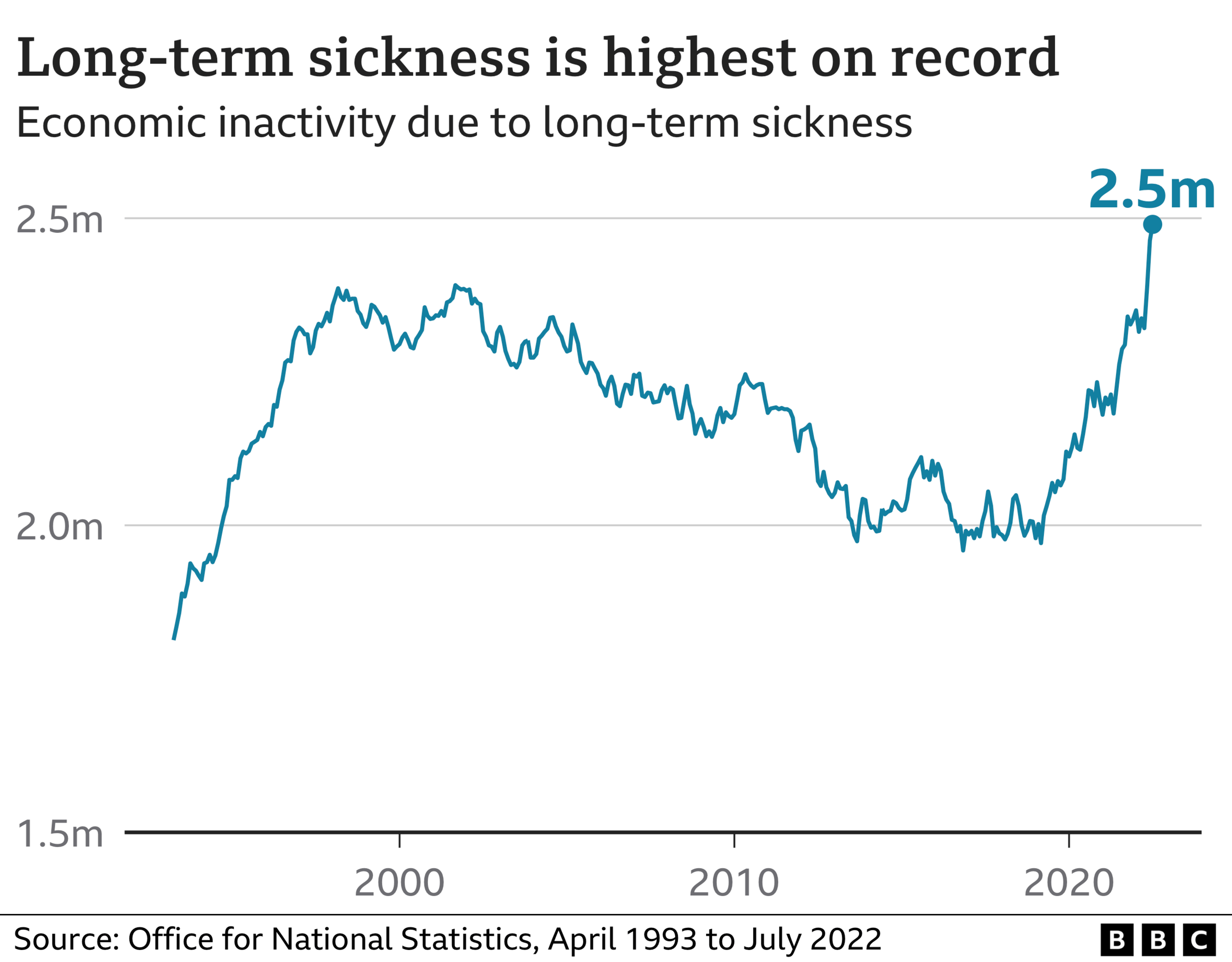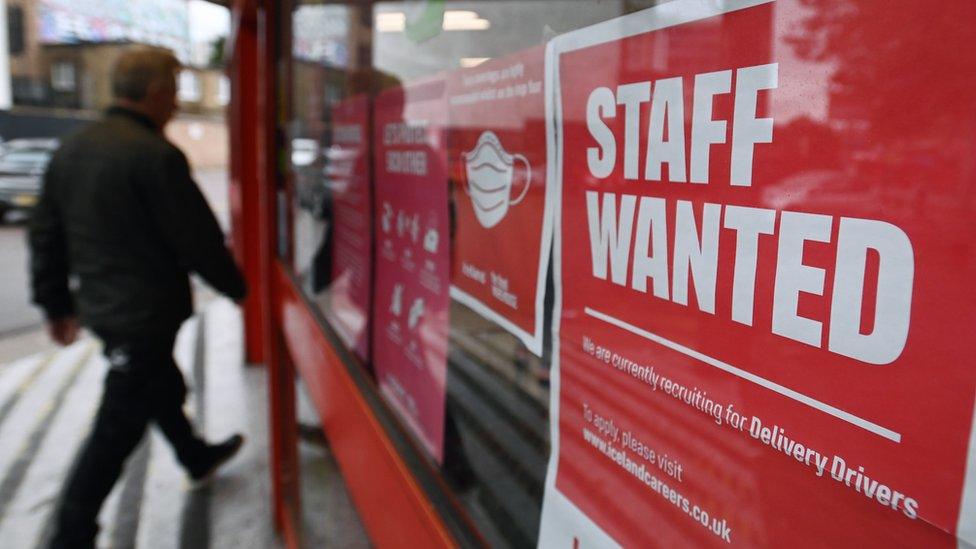Workers may be able to still claim sickness benefits
- Published

Some people claiming sickness and disability benefits could be allowed to keep receiving payments even if they find work, under plans being considered by the government.
The proposals are aimed at getting more people back into employment.
At the moment, benefits can be reduced or withdrawn altogether when a claimant returns to work.
A source told the BBC there was to be a "radical rewiring" of how the benefits system operates.
Recent figures suggest some 2.5 million people are missing from the labour market because of medical conditions.
In his Autumn Statement last year, Chancellor Jeremy Hunt expressed concern that employment had not returned to pre-pandemic levels.
And last week, Prime Minister Rishi Sunak said the government was looking at a range of measures to tackle the issue, adding: "We need to look at how our welfare system is operating... we would like to make sure that we are supporting and incentivising people who can be, to be in work."
Work and Pensions Secretary Mel Stride has been tasked with finding ways to reduce the number of people out of work.
A Health and Disability White Paper detailing the new plans - which are yet to be finalised - is expected later this year.
"One of the biggest challenges we're facing is how to support people to start or return to work, and we are looking at this issue in depth," said a spokesperson for the Department for Work and Pensions.
The spokesperson added that the white paper would be published "in the coming months", following "consultation with disabled people and people with health conditions to help shape our approach".
The Times reported, external that the white paper would recommend scrapping the "work capability assessment" system used to consider eligibility for benefits, with ministers describing it as a "perverse incentive to prove how sick you are".
It could be replaced with a process that instead asks claimants to demonstrate what work they might be able to take.
The paper also said the Treasury was considering offering tax breaks to people for entering jobs.
Labour has outlined plans to reform the system should it win power, announcing that claimants who take a job but then have to stop working within a year would not have to undergo another capability assessment in order to claim benefits again.

Torsten Bell, chief executive of the Resolution Foundation think tank, told the BBC's Today programme that the Covid pandemic had clearly had a major impact on sickness levels.
However, he said: "People shouldn't place much faith in changes to the benefit system leading to people who left during the pandemic returning [to work].
"Once people have left the labour market for a large period of time they're very unlikely to come back."
However, Mr Bell said that did not mean "you shouldn't reform the benefit system to prevent rises in inactivity in future".
He added that the focus should be on keeping people with a disability or who have become ill in their current jobs.
Before Christmas, reports suggested that the government was considering plans to persuade retired middle-aged workers back into jobs to boost the economy.
Older people who have given up work could be offered what is being dubbed a "midlife MoT" to entice them back into employment, the Times reported last month, external.
The House of Lords Economic Affairs Committee, external reported recently that a wave of early retirement following the pandemic helped to cause a huge labour shortage in the UK.
It said some 565,000 more people were economically inactive in December than at the start of the pandemic.
Related topics
- Published10 January 2023

- Published24 December 2022

- Published11 October 2022
